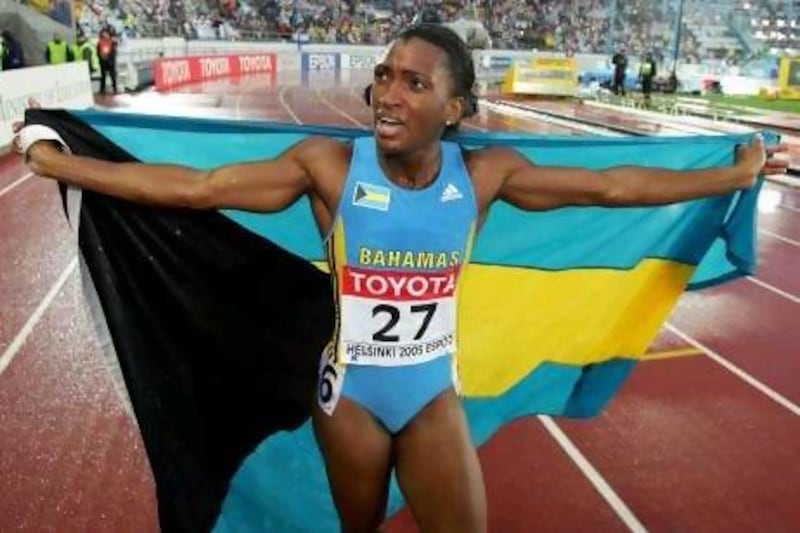Has anything ever bothered you vaguely but not enough to figure out why?
For a decade or two, the traditional Olympic medals table left me with a mild disquiet. I would see the Soviet Union and the United States near the top, or the United States, Russia and China in post-Soviet years, and I would have a thought you could sum up roughly as follows:
So?
Shouldn't those well-funded, populous countries win the most medals? Isn't that table sort of hollow straightaway? Does it mean anything?
I never thought much beyond that until the 2002 Salt Lake City Winter Olympics, when I stood in the main press centre as the 16 days wound down and such pearls as snowboarding and short-track speed skating again set to fade from view for four more years.
The American sportswriter Laura Vecsey walked by, and we began conversing and laughing as usual.
Sometime in that chat, she suggested repairing the medals table injustice with medals per capita, which utterly changed my view of every Olympics since. It also set me upon years of long division, some of it without a calculator just to keep the mind fresh. Long strands of numerals would trickle around the edges of legal-pad pages.
By 2004, on a flight from New York to Athens for the Summer Olympics, there I sat, aisle seat, dutifully jotting the populations of all the participating nations for future calculations, feeling very much like ...
Like a loser.
Still, medals per capita (MPC) so trumps and trounces the traditional medals table that I feel embarrassed for the traditional medals table whenever I see it. Medals per capita does have flaws, just not as many as the lazy, useless, senseless, despotic medals table. Think about medals per capita, and you might start thinking about, say, the Pacific island country of Nauru.
If Nauru ever could snare even one medal with its population of 9,378, it pretty much would clinch medals per capita right there, rendering all other nations hopeless.
What beauty that would be.
Back at Salt Lake City 2002, medals per capita went decidedly to Norway, a Winter Olympics medals-per-capita dynasty. Demonstrating its peerless winter might, Norway hoarded 24 medals, 10 of those in cross country skiing and, for versatility, another in curling. Take those 24 medals and divide them into a convenient population of a little over 4.2 million, and Norway got a medal for every 175,861 Norwegian citizens, a number so impressive that you could almost envision people walking around Oslo or Bergen with medals as routine fashion accessories.
Germany won 35 medals in those Games, and the United States 34, but those countries drew from drastically larger pools of human talent. The average Norwegian proved more studly, as if it's something in the lutefisk, if in fact Norwegians still eat lutefisk.
All that said, I do realise that medals per capita does leave, say, China, with its estimated 1,343,239,923 people, in sort of a bind. It inconveniences the United States with its 311,591,917 including one fish/man from Baltimore, for not even Michael Phelps could make up the long-division vexation that dooms the United States from the get-go.
Well, tough.
Medals per capita tilts toward smaller nations.
Well, good.
Smaller nations give the Olympics their flavour. In medals per capita, the mighty United States winds up staring up at the mighty-mighty ... Bahamas.
The last 10 traditional medal tables have gone to the Soviet Union in 1972 (with the US second), the Soviet Union in 1976 (with the US second), the Soviet Union in 1980 (with East Germany second), the US in 1984 (with West Germany second), the Soviet Union in 1988 (with East Germany second), the Unified Team of the former Soviet Union in 1992 (with the US second), the US in 1996 (with Germany second), the US in 2000 (with Russia second), the US in 2004 (with Russia second) and the US in 2008 (with China second but first in golds).
Sorry. I just dozed off rereading that paragraph.
In the medals per capita summertime edition, however, you must watch out for the radiant Caribbean nations, for while the world visits them to relax, they have not been relaxing. They have been dominating.
As Athens 2004 went merrily through its 16 days, the medals-per-capita tussle churned with such countries as Estonia, Bulgaria, Belarus, Slovenia and big, brawny Australia, which with around 20 million people might stand as the medals-per-capita bigger-country-division kingpin. Suddenly, as the athletics competitions had their second-week moment, a dynasty butted into the fray.
The Bahamas got a gold medal from Tonique Williams-Darling in the women's 400 metres. It got a bronze medal from Debbie Ferguson in the women's 200 metres, whereupon Ferguson said, "Per capita, the Bahamas has actually won the Olympics," whereupon Ferguson became a medals-per-capita sweetheart for all time, warming the hearts of medals-per-capita enthusiasts everywhere -like, all 12 of us.
Suddenly, the Bahamas had a medal for every 149,848 Bahamians, launching the Bahamas insuperably ahead of the admirable, runner-up Australians, those incomparable sport lovers. Moreover, Cuba chimed in at No 3 with Jamaica at No 6, even as the late rankings heaved with 21st-century fate when a Hungarian discus thrower got disqualified for a doping issue, flinging another medal toward contending Estonia.
So as Beijing 2008 approached, those with long division in our heads knew that even as Australia and New Zealand battled for position with their chiding rivalry, and even as Slovenia and Slovakia excelled, and even as Armenia thrived ... once the athletics began in the second week, the Bahamas lurked.
And when it got a bronze medal from Leevan Sands in the men's triple jump, followed by a gold in the men's 4x400 relay from Andretti Bain, Michael Mathieu, Andrae Williams and Christopher Brown, the Bahamian dynasty persisted. Jamaica finished second and Cuba eighth in the Caribbean flourish, while the table got a sudden jolt from the team handball silver medal of Iceland, which rocketed the Icelanders to third with a medal (one) for every 304,367 citizens (total: 304,367).
Australia still thrived in fifth, with 46 medals or one for every 447,844, just ahead of New Zealand, in sixth with nine medals or one for every 463,717. Bahrain appeared in 14th, but later had it stripped for a doping violation, and the medals-per-capita table heaved with vividness and importance while it parked the United States in 46th and China in 68th, down where they belong. Maybe at its utmost, medals per capita could serve as a curb against overpopulation.
Follow us
[ @SprtNationalUAE ]





